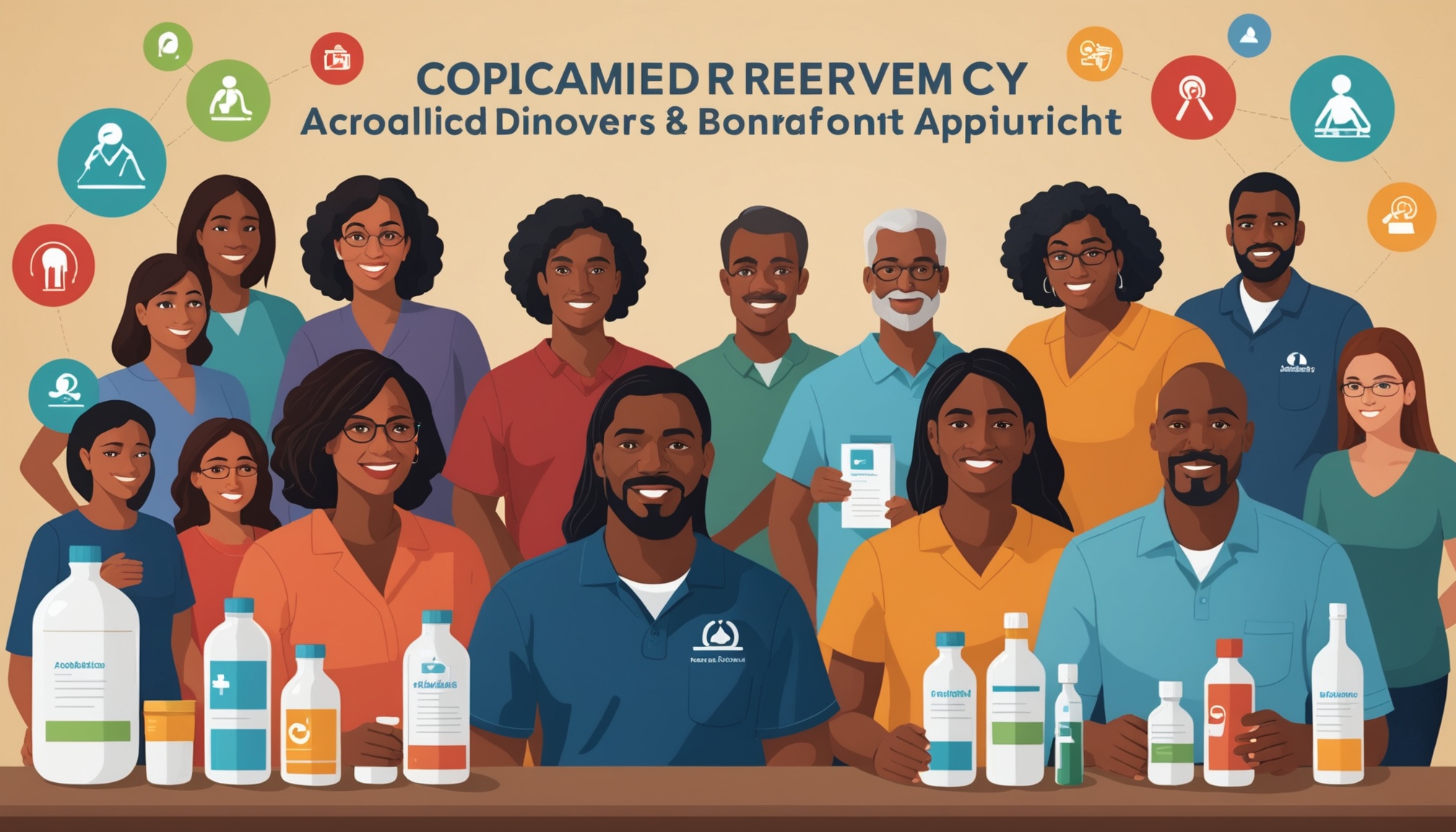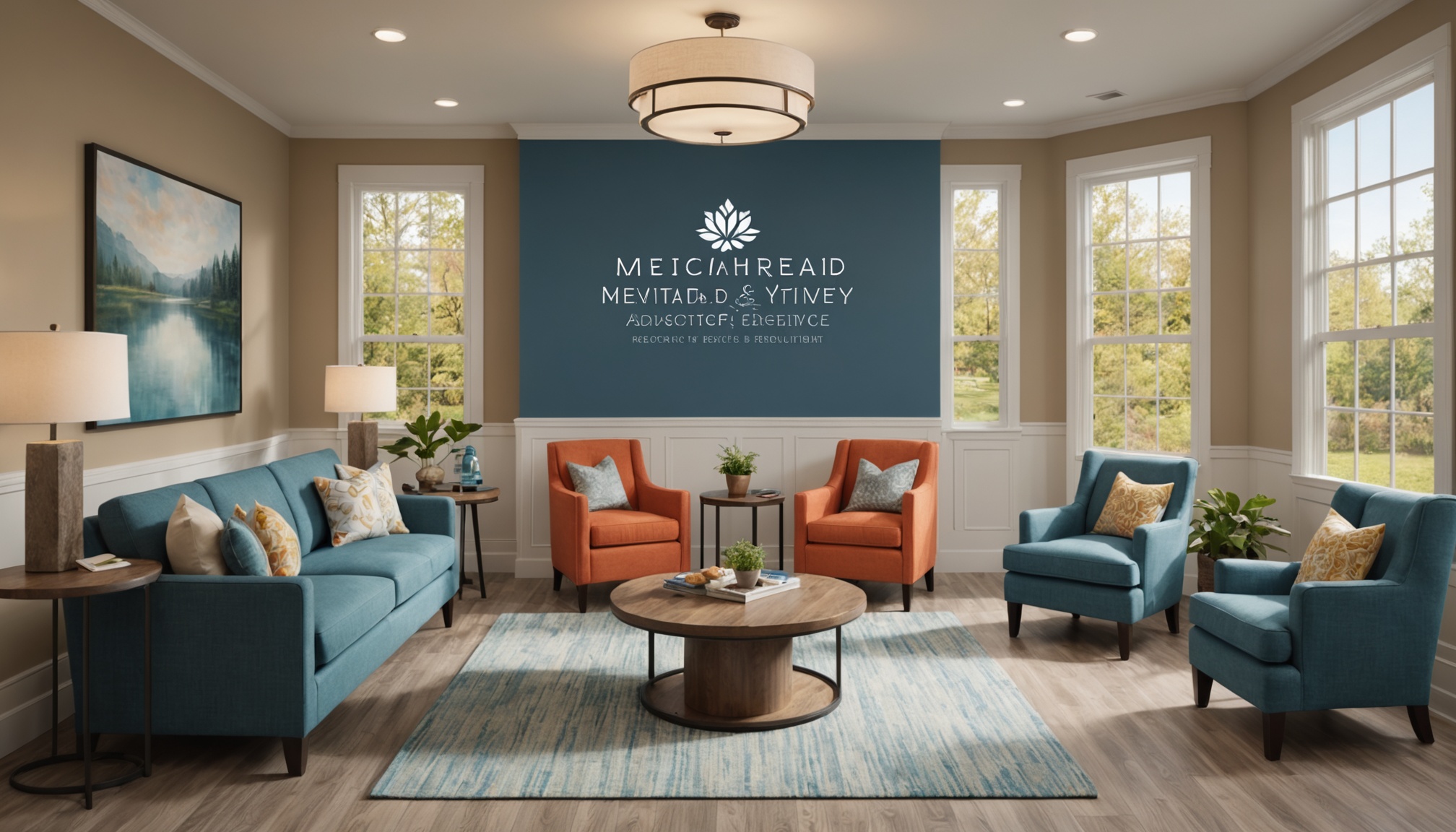
Overview of Addiction Recovery Services
Importance of Medicaid in Treatment
Medicaid plays a crucial role in ensuring that individuals struggling with substance use disorders have access to necessary addiction recovery services. As a significant payer for mental health services in the United States, Medicaid is increasingly focused on financing treatment for substance use disorders. This coverage enables a continuum of care that connects you with social services tailored to meet your unique needs (American Addiction Centers).
Medicaid covers a wide range of treatment options, including alcohol rehab, drug rehabilitation, and outpatient services. This funding is essential to finance substance use disorder treatments in the country. In fact, in 2020, the federal government mandated that states provide Medicaid coverage for specific drugs, counseling, and behavioral therapies related to addiction treatment, particularly for opioid use disorders (American Addiction Centers).
Here’s a summary of Medicaid’s coverage for addiction recovery services:
| Service Type | Coverage under Medicaid |
|---|---|
| Inpatient Rehab | Yes |
| Outpatient Programs | Yes |
| Medication-Assisted Treatment (MAT) | Yes |
| Counseling and Therapy | Yes |
| Residential Treatment | Yes |
By leveraging Medicaid, you can access various rehab services that take Medicaid insurance, ensuring you receive the treatment and support necessary for recovery. This coverage not only facilitates the treatment of substance use disorders but also enhances the overall quality of care by integrating various support services.
For more specific information on programs available, explore our resources on rehab programs that take Medicaid and drug rehab that accepts Medicaid. Utilizing Medicaid can help you on your journey to recovery by making essential treatment options more affordable and accessible.
Medicaid Coverage for Addiction Treatment
Finding affordable addiction treatment can be a necessary step toward recovery. Understanding the details of Medicaid coverage for these services is crucial for you and your loved ones. Here, we break down the comprehensive services available, as well as any restrictions and limitations that you might encounter.
Comprehensive Services Available
Medicaid offers a range of treatment options for individuals seeking help for substance use disorders. Coverage typically includes:
-
Inpatient and Residential Treatment: Medicaid covers inpatient programs and residential treatment facilities, providing a structured environment for recovery from addiction. This comprehensive care follows the levels of treatment recommended by the American Society of Addiction Medicine (American Addiction Centers).
-
Counseling and Behavioral Therapy: Medicaid provides coverage for various forms of counseling, including individual addiction counseling and group therapy programs. These therapeutic services are essential for addressing the psychological aspects of addiction.
-
Medication-Assisted Treatment (MAT): As mandated by the federal government, states are required to cover certain medications for opioid use disorders, providing a crucial tool for those in recovery (American Addiction Centers).
-
Outpatient Services: Medicaid also covers various outpatient rehab programs, including intensive outpatient programs (IOP) and partial hospitalization programs (PHP). These options allow flexibility in treatment while enabling you to maintain daily responsibilities.
| Service Type | Medicaid Coverage |
|---|---|
| Inpatient and Residential Treatment | Yes |
| Counseling and Behavioral Therapy | Yes |
| Medication-Assisted Treatment (MAT) | Yes |
| Outpatient Services | Yes |
Restrictions and Limitations
While Medicaid offers a wide range of addiction treatment services, there are some restrictions and limitations to consider:
-
State Variations: Medicaid coverage can vary significantly from state to state. Therefore, it’s vital to verify with your local Medicaid office regarding the specifics of the coverage offered in your area.
-
Eligibility Requirements: Some rehab services may have specific eligibility requirements that you must meet to qualify for Medicaid coverage. These requirements can include income limits and other factors.
-
Waiting Lists: In certain cases, even though Medicaid mandates coverage, you might experience waiting lists for specific treatment services. This could be a significant factor in less accessible treatment programs (American Addiction Centers).
-
Limited Provider Networks: You might encounter limited choices when selecting a treatment provider. Ensure that the rehab facility you are considering accepts Medicaid to avoid out-of-pocket expenses.
For additional information on what specific services fall under Medicaid coverage, check out our articles on drug rehab that accepts medicaid or alcohol rehab that takes medicaid. Awareness of both the services available and potential limitations can help you navigate your recovery journey more effectively.
Vital Health Services for Recovery
When seeking addiction recovery, it’s important to understand the various vital health services available that accept Medicaid. These services include integrated outpatient programs and access to medication-assisted treatment, which play a crucial role in your journey toward recovery.
Integrated Outpatient Programs
Integrated Outpatient Programs (IOPs) can be a lifeline in your recovery process. Many states utilize Medicaid’s rehabilitation services option to cover outpatient treatment for substance use disorders. This can include addiction treatment medications, counseling, and case management. This flexibility allows you to continue working and caring for your family while receiving the support you need (American Addiction Centers).
| Program Type | Services Offered |
|---|---|
| Intensive Outpatient Program (IOP) | Group therapy, individual therapy, case management |
| Partial Hospitalization Program (PHP) | Daily therapeutic support while allowing return home at night |
| Outpatient Counseling | Flexible therapy sessions to fit your schedule |
You can explore more about these rehab programs that take Medicaid to find one that suits your needs.
Access to Medication-Assisted Treatment
Access to medication-assisted treatment (MAT) is another critical component of recovery. In 2020, federal guidelines were issued to ensure states provide Medicaid coverage for MAT, particularly for opioid use disorders. This treatment combines approved medications with counseling and behavioral therapy to enhance recovery outcomes (American Addiction Centers).
Medicaid-funded programs often cover a range of services including:
| Service | Description |
|---|---|
| Medical Detox | Safe withdrawal supported by medical professionals |
| IOP and PHP | Structured treatment programs that allow flexibility |
| Group Therapy | Therapeutic sessions in a supportive shared environment |
In Texas, for instance, Medicaid commonly includes comprehensive coverage for MAT, intensive outpatient programs, and partial hospitalization programs, all of which play pivotal roles in recovery (Drug Rehab USA).
To learn more about available services, check out our article about substance use treatment covered by Medicaid and explore your options.
Choosing the Right Treatment Program
Finding the right treatment program is essential in your journey towards recovery. Two critical elements to consider in this process are individualized treatment plans and evidence-based care.
Individualized Treatment Plans
An individualized treatment plan is tailored specifically to meet your unique needs and circumstances. This approach recognizes that no two individuals are the same, and what works for one person may not work for another. Customizing a plan ensures that you receive the most appropriate and effective treatment for your substance use disorder.
Medicaid supports various rehabilitation programs that provide individualized treatment services, enabling you to focus on your specific challenges and goals. This could include a blend of intensive outpatient programs (IOP), partial hospitalization programs (PHP), and medication-assisted treatment (MAT), among others. Your recovery program will assess factors such as your medical history, substance use patterns, and personal preferences, ultimately guiding the development of a comprehensive plan.
To learn more about the types of programs available, check out our page on rehab programs that take Medicaid.
Evidence-Based Care
When considering treatment options, it’s vital to choose programs that utilize evidence-based care. Evidence-based practices are approaches that have been scientifically proven to be effective in treating substance use disorders. These methods draw on research and data to determine the most successful strategies for recovery.
Services backed by evidence may include cognitive-behavioral therapy, motivational interviewing, and contingency management. By embracing these proven techniques, you increase the likelihood of positive outcomes in your recovery journey.
Medicaid covers a range of evidence-based treatments, which can be invaluable in your path to sobriety. It’s essential to verify that the treatment programs you’re considering are compliant with the standards set forth by organizations such as SAMHSA, which seeks to ensure access to quality care (SAMHSA).
Summary Table of Treatment Options
| Treatment Type | Description | Medicaid Coverage |
|---|---|---|
| Intensive Outpatient Programs (IOP) | Structured programming while allowing for daily living | Yes, varies by state |
| Partial Hospitalization Programs (PHP) | More intensive than IOP, less than inpatient | Yes |
| Medication-Assisted Treatment (MAT) | Combines behavioral therapy and medications | Yes |
| Inpatient Rehabilitation | Residential treatment for severe cases | Yes |
| Outpatient Programs | Flexible treatment while living at home | Yes |
For additional information on substance use treatment programs, explore our resources on addiction treatment centers that accept Medicaid or learn about the specifics of dual diagnosis rehab that accepts Medicaid. Your recovery process is unique, and selecting the right treatment program is a significant step towards achieving lasting sobriety.
Transitioning to Recovery Housing
Finding the right environment is a critical aspect of your recovery journey. Once you’ve completed treatment, transitioning to recovery housing can provide you with the necessary support to maintain your sobriety.
Importance of Supportive Environments
Supportive environments play a key role in helping you navigate the challenges of recovery. Recovery housing offers a structured and safe space where you can continue to heal while surrounded by others with similar experiences. This community aspect fosters accountability and encouragement, which can significantly reduce the risk of relapse.
Research indicates that the support from peers in recovery can bolster your chances of long-term sobriety. In recovery housing, you can participate in group therapy sessions and community-building activities, further enhancing your rehabilitation experience. If you’re seeking housing options that accept Medicaid, check out our resources on medicaid approved recovery housing.
Long-Term Recovery Strategies
Long-term recovery strategies are essential for maintaining sobriety after leaving a structured treatment setting. Engaging in ongoing recovery support, whether through therapy, support groups, or sober living environments, helps establish social networks that reinforce your commitment to sobriety.
Here are some effective strategies to consider:
| Strategy | Description |
|---|---|
| Continued Counseling | Maintain regular sessions with a counselor to address challenges as they arise. Addiction counseling that takes Medicaid can be a great option. |
| Support Groups | Join local or online support groups to share experiences and gain insights from others. |
| Life Skills Training | Develop coping and life skills through programs that assist in daily living and employment. Explore our outpatient substance use program that takes Medicaid. |
| Relapse Prevention | Participate in programs focused on identifying triggers and learning how to manage them. Consider relapse prevention program covered by Medicaid. |
Utilizing these long-term strategies can provide the necessary tools for sustaining recovery over time. By leveraging resources available through Medicaid support, such as medicaid-covered medication for addiction recovery, you can enhance your recovery process. Remember, transitioning to recovery housing doesn’t mean the end of your support network; it can be the beginning of a strong foundation for your newfound life.
Success Stories and Testimonials
Community Impact and Support
The importance of community support in addiction recovery cannot be overstated. Many individuals have shared how access to rehab services that take Medicaid insurance has changed their lives. Affordable treatment options have enabled families to seek the help they need without the burden of overwhelming costs. As reported by American Addiction Centers, approximately 71 million Americans were enrolled in Medicaid as of November 2024, highlighting the extensive reach of this program.
Numerous local recovery networks offer group therapy sessions, family support programs, and community outreach initiatives that have fostered healing environments. Supportive communities help individuals feel less isolated in their journeys, providing a network of understanding and encouragement.
| Community Benefits | Impact on Recovery |
|---|---|
| Access to group therapies | Builds understanding and camaraderie |
| Family outreach programs | Strengthens family support systems |
| Local recovery networks | Offers ongoing encouragement and connection |
| Sober living environments | Provides stable transitional housing |
For more on the broader implications of community support in recovery, check out our article on recovery programs that accept medicaid.
Personal Recovery Journeys
Hearing personal success stories can inspire hope for those struggling with addiction. For many, enrolling in Medicaid-approved rehab has provided them the crucial support they needed to overcome challenges. People share experiences of lasting change, often attributing their recovery to intensive outpatient programs (IOP) and other vital rehabilitation services.
For example, one individual stated that the combination of medication-assisted treatment (MAT) and counseling helped him regain control over his life after years of battling opioid addiction. He discovered that outpatient rehab that takes Medicaid offered not just medical assistance, but also a sense of community and understanding among peers who were facing similar struggles.
Individuals have reported improved relationships with family members, regain of employment, and a newfound passion for life through programs like intensive outpatient program that takes medicaid and partial hospitalization program that takes medicaid.
Stories like these emphasize that recovery is not just about abstaining from substances; it’s about rebuilding lives in a healthy, supportive environment. Real results are achieved when services address both addiction and its underlying issues, facilitating long-lasting recovery paths.
If you’re interested in learning about specific treatment options, explore our resources on substance abuse counseling that takes medicaid or dual diagnosis rehab that accepts medicaid for comprehensive support.







